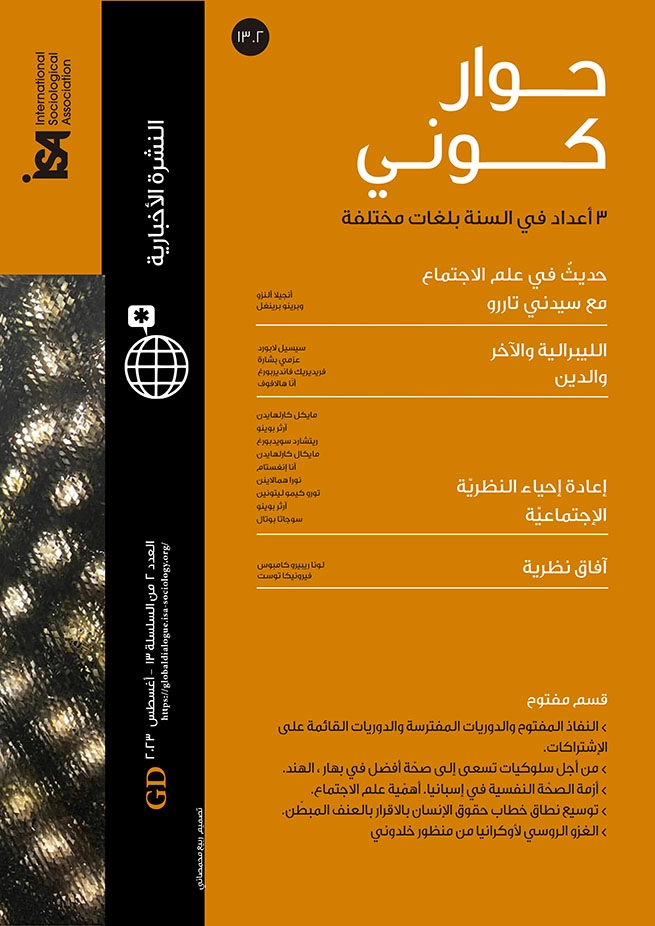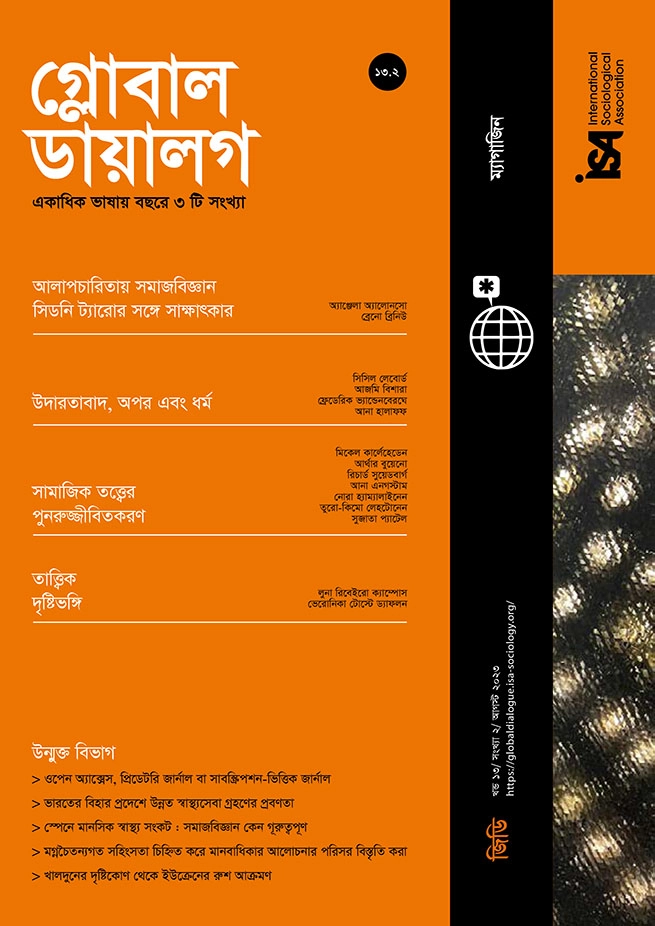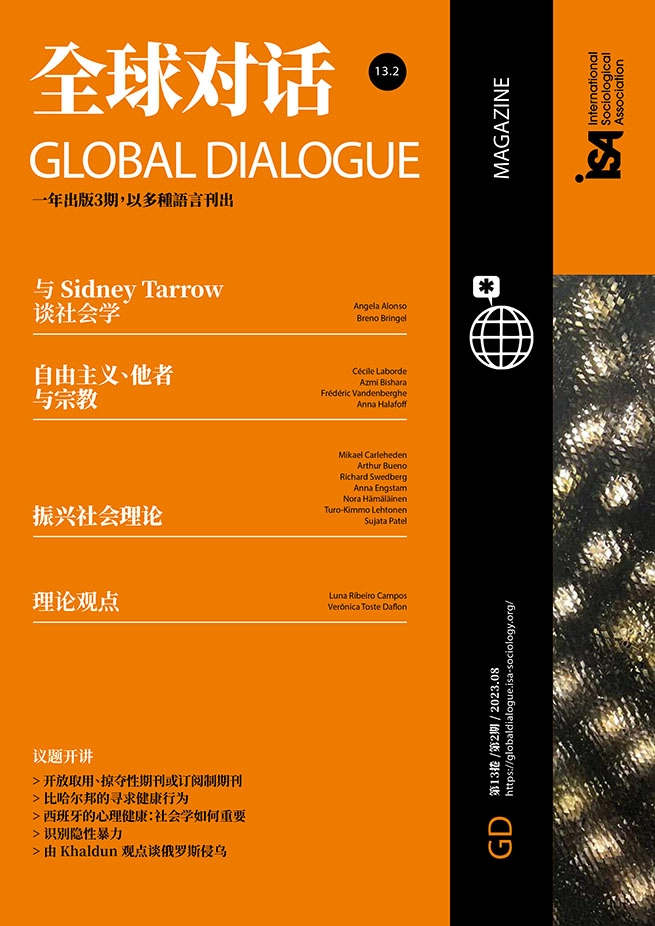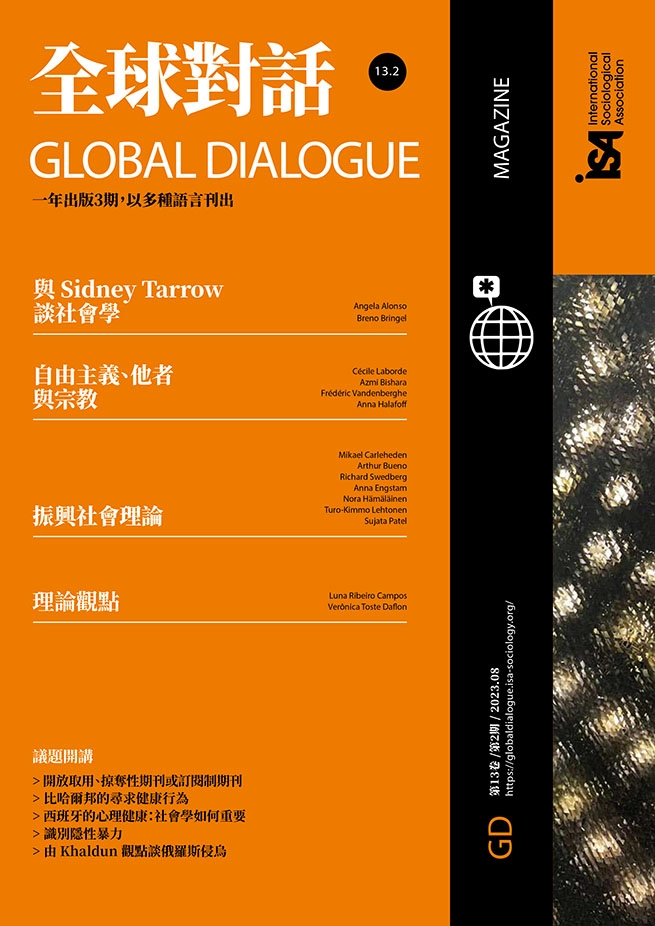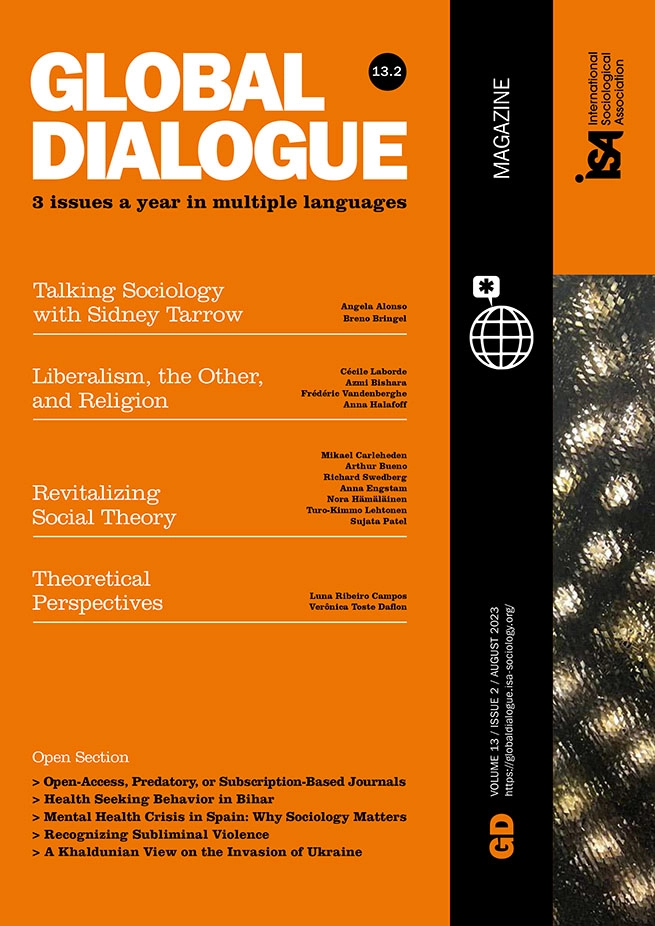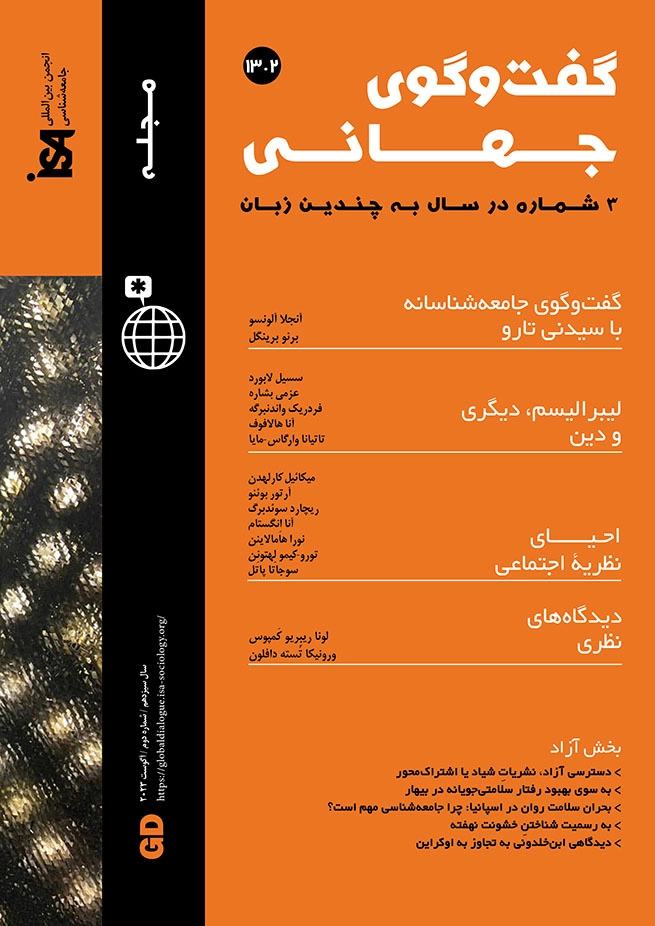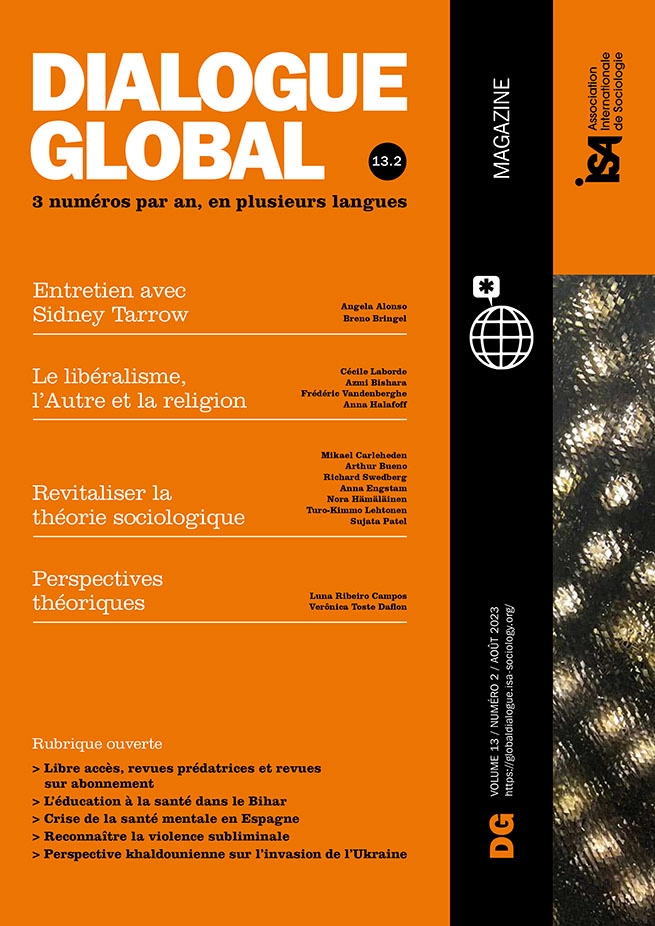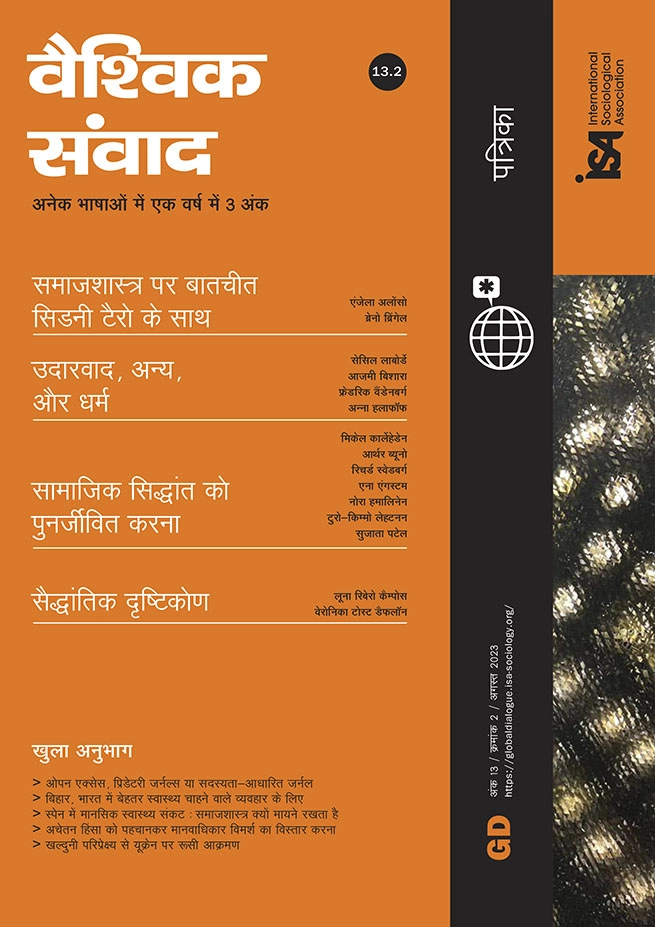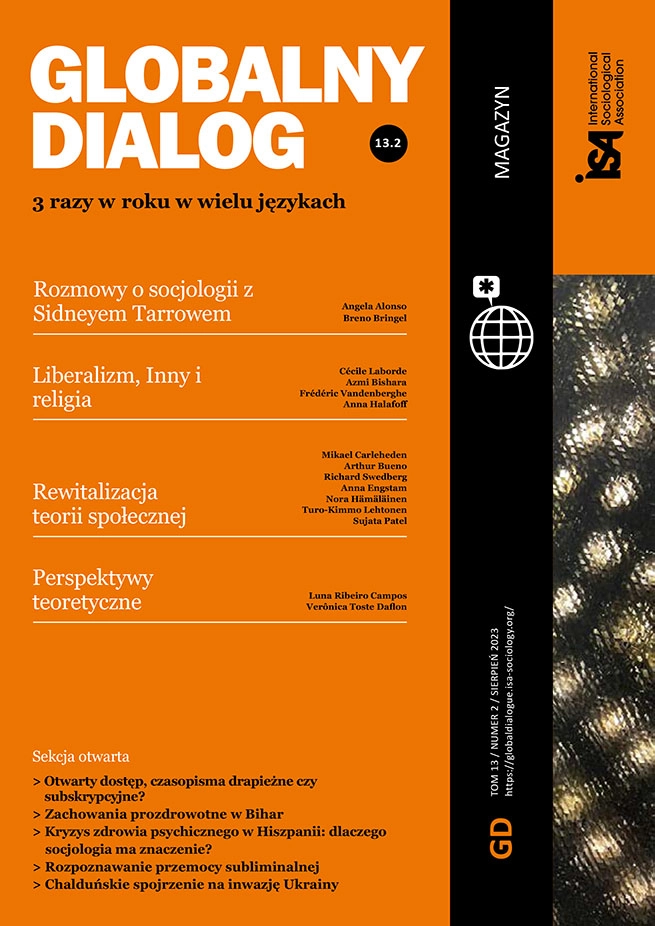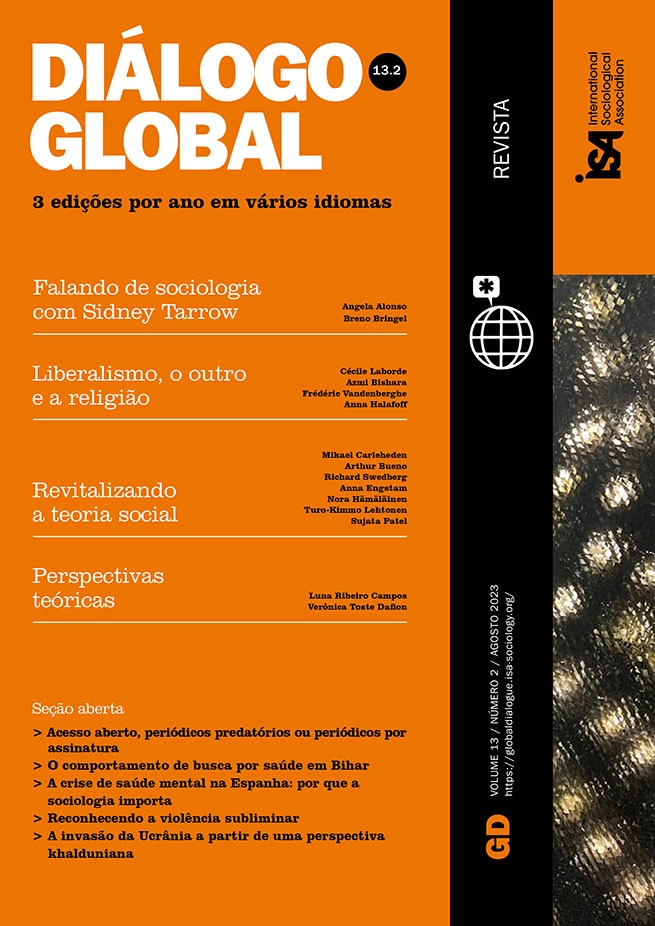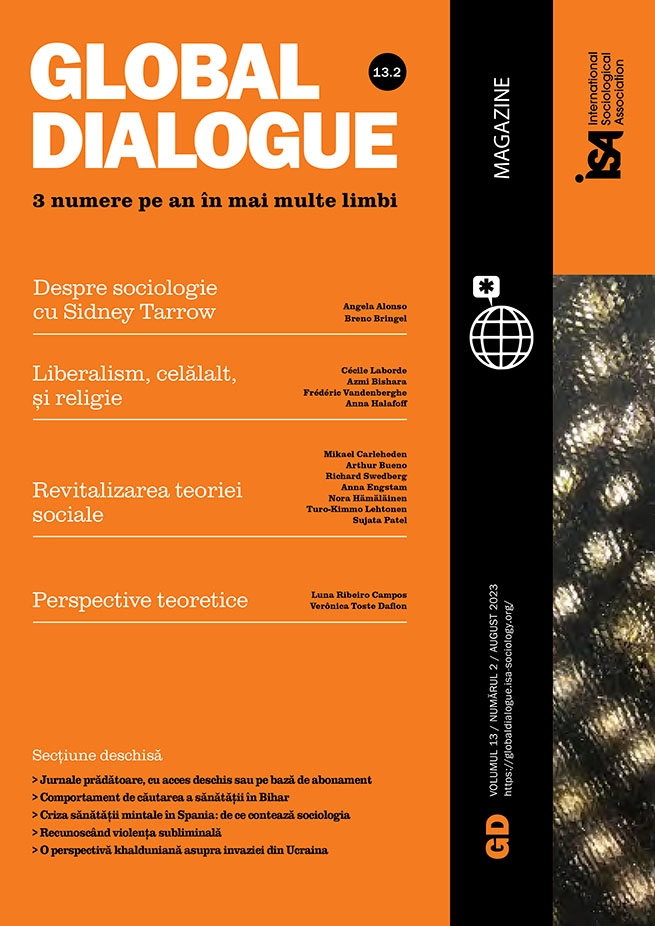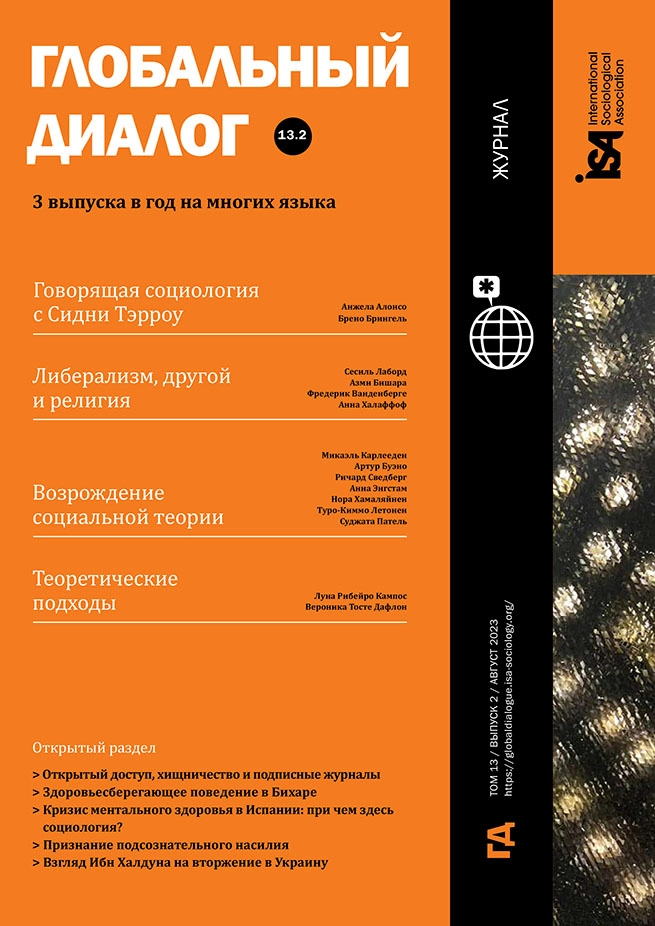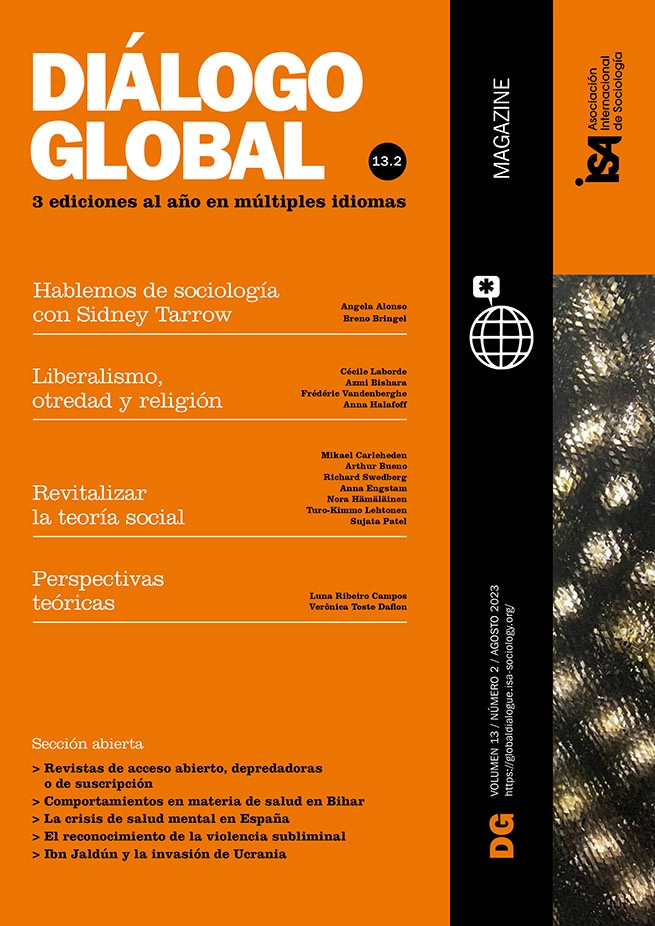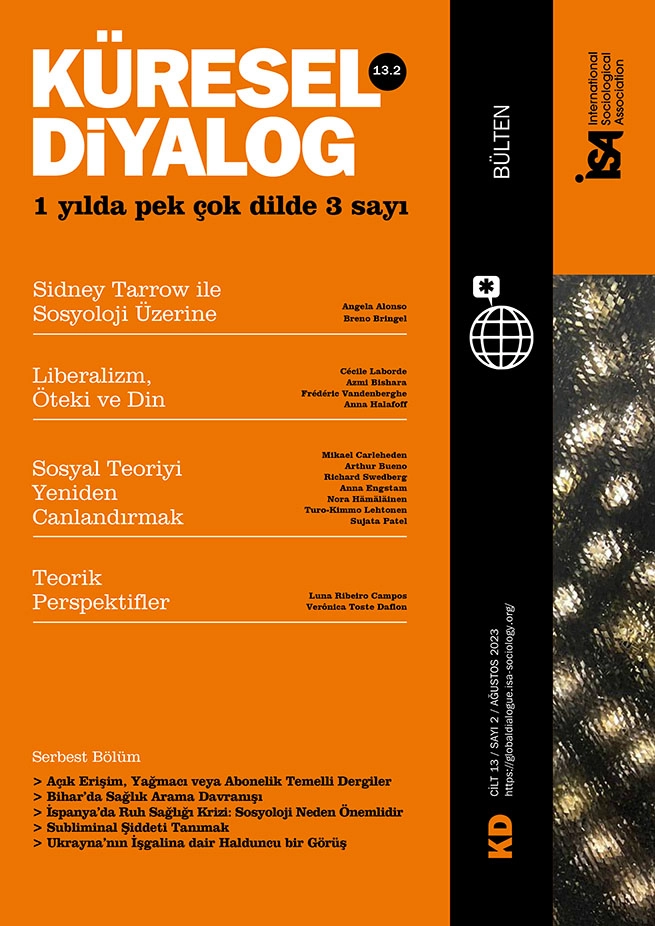How should we understand the relation between theoretical and empirical work? Sociologists have most often talked about it as highly problematic. Claims like “a very deep hiatus” (Parsons), “divorcement” (Blumer), and “an extremely damaging division” (Joas and Knöbl) are common. Attempts to understand the relation have a history as old as the discipline of sociology itself. The proposals have shifted with the dominant methodological convictions. In view of this history, a pluralistic approach seems reasonable. So, one possible point of departure is the following: A sociologist is a scientist who sits on a stool with three legs: qualitative research, quantitative research, and social theory. If one of these legs is in bad shape, the stool might break, and the sociologist would fall over.
These “legs” signify the internal differentiation of sociology into three main subfields, while the stool as a whole signifies their interdependency. Different skills and knowledge are developed in the three subfields, which are of mutual benefit. The need to integrate these skills and knowledge, without losing the gains from differentiation and specialization, is currently discussed under the heading “mixed method.” However, the focus of such work is primarily the relation between quantitative and qualitative research. So what about the third leg? Should we simply add it to the mixed methods approach in order to analyze a tripartite relation instead of a twofold one? In this article, I will suggest another way forward.
We are all theorizing
My suggestion is based on the observation that today most sociologists claim to be theorizing, in one sense or the other. Theorizing seems to be directly included in the first two subfields, while social theory is only indirectly related to empirical research. Furthermore, theorizing in the first two subfields seems not – at least not primarily – to be about applying and testing social theories in the sense of the third subfield. Rather, the three subfields seem typically to contain different theorizing practices. If this is true, any attempt to answer the question I opened this article with, must take multiple relations between theoretical and empirical work into account. Also, theorizing should be understood as differentiated and in need of integration, without which the gains of differentiation are lost.
The missing methods of theorizing
This suggestion implies that we should not talk only about empirical methods, but also about theoretical methods. In an initial step, we might then make a distinction between variable analysis, interpretative analysis, and social theory. However, it is often unclear what sociologists mean when they claim that they theorize and how that theorizing is conducted. Compared to empirical methods, sociologists surprisingly seldom seem to reflect on the craft or art of theorizing – not even in the subfield of social theory. We seldom or never see textbooks, courses, journals, methods sections, or research networks about theoretical methods. Thus, theoretical practices are characterized by “knowing how” rather than “knowing that” (Ryle). So, in order to prevent both methodological and theoretical imperialism and to develop the multiple practices of theorizing, we need to clarify these practices, i.e., to formulate methods of theorizing.
Based on a reconstruction and development of Gabriel Abend’s distinction between seven meanings of theory, in a forthcoming article[1] I suggested seven methods of theorizing in relation to the three subfields of sociology, as laid out in what follows.
- Quantitative research (Variable analysis):
T1 Empirical generalization of facts and of correlations between variables
T2 Construction of hypotheses about causal relations between variables at a middle-range level
- Qualitative research (Interpretative analysis):
T3 Interpretation: Context-dependent (close and thick) conceptualization of meaning constructions
T4 Social theoretical exegetics
T5 Social ontology: Conceptualization of the fundamental features of social relations
T6 Social criticism: Construction, reconstruction or deconstruction of social norms and practices
T7 Theory of society: Conceptualization of the constituting structural principles of a society and their transformation over time (macro level)
Observation versus the armchair approach
This differentiation of ways of theorizing is based on two parameters: the kind of relation between theorizing and observation (e.g., surveys, interviews, field studies, and experiments), on the one hand, and the subject matter of theorizing, on the other. The fact that theorizing in the first three cases is directly involved in empirical research does not in any immediate way release them from the problem of linking empirical and theoretical work. All methods of theorizing must take into account that theory is “underdetermined by evidence.” What divides the first three methods from the latter four is rather that the problems under investigation in social theorizing cannot be resolved by empirical research. These problems primarily demand “armchair sociology.”
However, it should be emphasized that the methods in the list above are to be understood as pure types. Theoretical work most often consists of some combination of the types. The hypothetico-deductive method can, for instance, be understood as a combination of T1 and T2. Social theorizing in the sense of T5, T6 or T7 most often takes its point of departure from T4. Variable analysis needs interpretative analysis when operationalizing, and interpretative analysis needs variable analysis to assess the general relevance of its results. Furthermore, both kinds of analysis need T7 to identify the influence of structural principles on their objects of study, T5 to reflect on their ontological points of departure, and T6 to consider the value-ladenness of facts. Conversely, social theorizing needs the results of empirical research to avoid the emptiness of pure social theory. However, the differentiation of sociology into subfields means that only some methods of theorizing are in play in any particular research project. Most often, only one or two of them are pursued in a systematic way, while the others are subordinated, have ad hoc status, and are tacitly replaced by common sense theorizing. Specialization is important for skillful theorizing, but at the same time it underlines the significance of cooperation between the subfields.
Calling for theoretical pluralism
To conclude, my suggestion is that we should take a conception of multiple methods of theorizing as a point of departure when linking theoretical and empirical work. That would imply that theorizing in sociology is neither just about applying and testing social theory in empirical research, nor about replacing social theory with variable analysis or interpretative analysis. In the history of sociology both these misconceptions have been common. Currently, there are many indications that point in the direction of a rehabilitation of a sociology dominated by variable analysis. We might be facing a “scientization” of sociology in a manner that we have not seen since the 1940s and 1950s. Such indications are the background of this call for theoretical pluralism. If we fail to take care of all three legs of the stool that we sociologists are sitting on, we will all fall over.
[1] Carleheden, M. (forthcoming) “Unchain the beast! Pluralizing the method of theorizing” in Fabian Anicker and André Armbruster (eds.) Die Praxis soziologischer Theoriebildung. Springer.
Mikael Carleheden, University of Copenhagen, Denmark <mc@soc.ku.dk>






